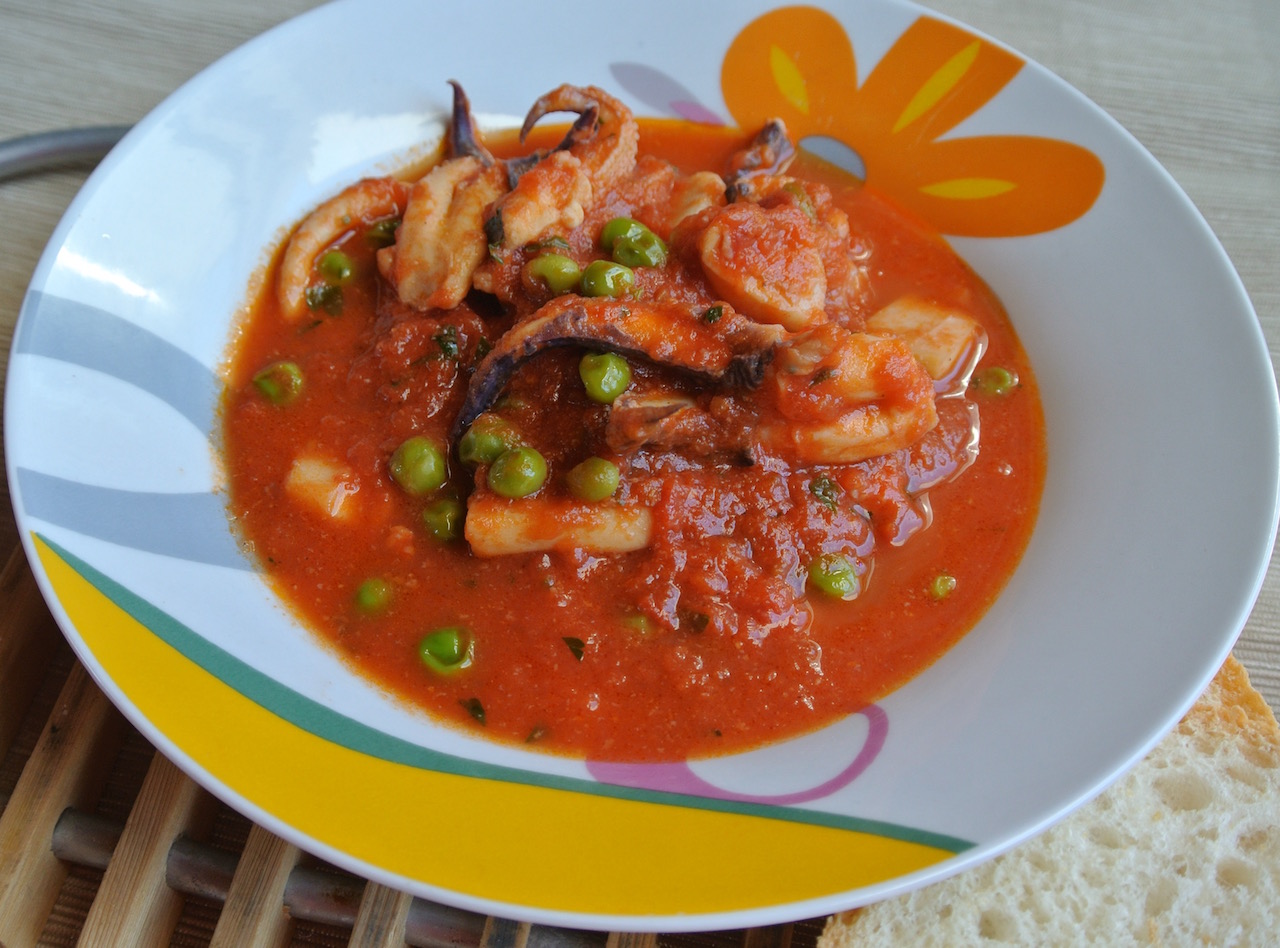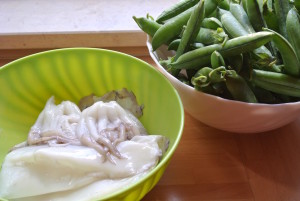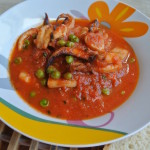
I’m in Italy!—in the region of Marche, along the Adriatic sea—staying in the town where my grandfather grew up (he immigrated to America in 1911, at age 22). I’m staying with my cousins—also named Becci—the branch of my grandfather’s and my family that remains here in this beautiful area—near the seaside resort town of Senigallia. From their hilltop town, Scapezzano, one has panoramic views of both sea and mountains, stretching away forever. This time of year most of the rolling hills that stretch out below this small hill town are bright green with wheat, or fava beans, or even artichokes; others are a rich brown where an early harvest has been followed by plowing to ready a picturesque field for a summer planting. At the edges of fields and roads, bright red poppies offer small pops of bright red that are impossible to miss—and savor!
The abundance of seafood here cannot be understated! Small fishing vessels each morning return with what Americans would think of as very exotic seafood, including strange-looking squid-like things (we have octopus and calamari, but that’s only the beginning of what’s on offer here!) and all sorts of prawns never seen even on restaurant menus back home in the United States.

And right now, here along this part of the Adriatic close, it’s seppie season. Seppie, you may ask? No, I’m not referring to a setting on your Instagram app—I mean a popular Adriatic sea creature. Seppie are cousins of the small squid we call calamari, but 10 times longer and fatter: you may know them as cuttlefish. Like an octopus, a seppia holds very powerful ink in sacks used for self-defense; this ink, along with the creature itself, can be used in all manner of cooking and making of pasta.
In the spring in Marche, when seppie are available, fresh garden peas still in their shells can be found at almost any farm stand. Fresh from their pods, these delightfully sweet spheres of springtime goodness cannot even be compared to the frozen product. Perfectly timed at this time of year, the combination of fresh peas and in-season seppie is a Marchegiani classic—and a tasty no-brainer!
Print
Seppie con piselli (Cuttlefish with peas)
- Yield: 4 servings 1x
Ingredients
- Extra virgin olive oil
- 3 cloves garlic, paper skin removed
- 2 lbs seppie (cuttlefish) cleaned (also available frozen in Asian markets, or substitute squid)
- 2/3 lb fresh peas, preferably still in their pods to be shelled just before cooking
- 28 ozs good-quality crushed tomatoes
- ½ cup white wine
- Salt and pepper
- Crusty bread
Instructions
- Shell the fresh peas, discarding the pods.
- Cut up the cuttlefish bodies into bite-sized pieces about 1-inch square. This can easily be done using kitchen scissors. Cut the legs into pieces of 2-3 legs each. Place in a colander and rinse and drain well.
- In a medium pot over medium heat, add 2-3 tablespoons olive oil. When the olive oil is heated, add the whole garlic cloves and lightly brown all over, to infuse the olive oil with flavor. Discard garlic.
- Add the cuttlefish to the hot oil and sauté for about 5 minutes, until the cuttlefish becomes white and opaque. Add the white wine and let it evaporate.
- Add the crushed tomatoes. Season with salt and pepper. Stir well.
- After 20 minutes of cooking, add the fresh peas, stirring to mix in.
- Cook for about 30 minutes until the cuttlefish is tender, stirring occasionally. Salt and pepper to taste.
- Serve with crusty bread.

In the desert at the moment and can only dream of such seafood… It’s a very nice dream. Enjoy and thanks!